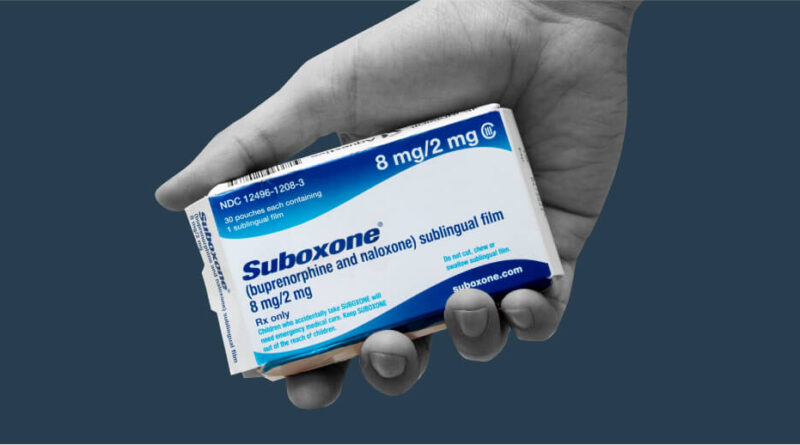The Confidentiality Factor: How Suboxone Doctors Protect Your Privacy
In addiction treatment, maintaining patient confidentiality is a cornerstone of ethical practice, safeguarding the dignity and rights of those seeking assistance. As individuals embark on their journey to recovery, the assurance of privacy becomes paramount, fostering an environment of openness and security.
By exploring the delicate balance between respecting legal and ethical standards, Suboxone healthcare providers empower patients to engage in addiction treatment confidently, thus promoting successful outcomes in their path to recovery.
How Do Suboxone Doctors Safeguard Patient Confidentiality?
Patient privacy preservation is a cornerstone of medical ethics, and in the sphere of addiction medicine, this factor becomes even more critical. Suboxone healthcare providers are deeply aware of the importance of maintaining patient confidentiality at all stages of the recovery journey. They employ stringent measures to safeguard patient information and ensure it is handled appropriately and securely.
Secure Record-Keeping Systems
A key initiative taken by Suboxone healthcare providers to ensure patient privacy is the employment of secure record-keeping systems. Often, these are secure, encrypted databases designed to minimize the risk of data breaches and leaks. Clinical notes, medication regimens, and personal information are securely stored within these databases. By operating such systems, a Suboxone doctor can assure patients that their sensitive information will be safeguarded efficiently.
Controlling Access to Patient Information
In addition to securing record-keeping systems, Suboxone healthcare providers implement stringent controls to regulate access to patient information. This strict access control confines access to patient information to a select group of individuals on a ‘need-to-know’ basis. This could include primary care providers, pharmacists, or other addiction treatment specialists integral to the patient’s holistic care strategy. Limiting the flow of information in this way greatly reduces the risk of unauthorized access and maintains a robust umbrella of privacy.
Upholding Informed Consent
In inpatient privacy, the principle of informed consent holds immense significance. Among Suboxone healthcare providers, this principle is treated with the highest regard. According to informed consent, patients must know who is accessing their information, for what specific purpose, and the duration of this access. Furthermore, patients possess the right to revoke their consent at any stage. By upholding these principles, a Suboxone doctor ensures that patients are consistently informed, given the right to control their information, and can thus trust in the appropriate usage of their sensitive data.
How Are Suboxone Doctors Creating a Safe Space for Patients?
A relationship infused with trust and respect between a Suboxone doctor and a patient forms the bedrock of a supportive and enabling environment for recovery. Suboxone healthcare providers at Confidant Health, adept in crafting and maintaining patient-doctor relationships, put in concerted efforts to foster a sense of belonging and positivity during the therapeutic journey.
Building Rapport
In nurturing a relationship rooted in trust and respect, rapport-building holds tremendous significance. Suboxone healthcare providers deliberately foster a safe, non-judgmental environment where patients feel free to express themselves. The clinician is sincerely interested in grasping the individualized nature of the patient’s condition, feelings, experiences, and apprehensions. This approach cultivates a harmonious relationship and sets the stage for more comfortable, effective interactions between patient and doctor.
Effective Communication
The ability to communicate effectively forms a crucial component of this relationship. Suboxone healthcare providers ensure they provide transparent, easy-to-understand information concerning the different treatment modalities available, proactively addressing any anxiety or questions surrounding the process. They stay open and approachable to any inquiries, diligently seeking to provide reassurances and enlightening responses that instill confidence in the patient about their recovery pathway.
Empathetic Responses
Empathy is another pivotal attribute in fostering trust and respect. It involves understanding the patient’s feelings and communicating that understanding effectively. An empathetic response from a Suboxone doctor validates the patient’s emotions and experiences, conveying that they are genuinely understood and valued. This emotional connection considerably bolsters the honesty and openness of discussions concerning the patient’s progress, hopes, and potential challenges on the road to recovery.
How are Suboxone Doctors Navigating Legal and Ethical Standards to Ensure Patient Privacy?
In this digital age, as more patient data moves online, the challenge intensifies. However, platforms like Confidant Health have risen to the occasion. As an innovative online app-based hub, Confidant Health not only connects patients with experienced suboxone doctors but also places a premium on cutting-edge data encryption and security protocols. The platform harmoniously marries technological prowess with ethical imperatives, ensuring that patients can access the care they need without compromising their privacy.
Legal Responsibilities
Suboxone healthcare providers vehemently commit to patient privacy by adhering to relevant medical laws and regulations. This primarily encompasses the Health Insurance Portability and Accountability Act (HIPAA) in the United States.
HIPAA establishes the benchmark standards for protecting sensitive patient health information, permitting any disclosure to authorized entities strictly on a ‘need-to-know’ basis. Further, these rules empower patients by allowing them to obtain a copy of their health records, correct any inaccuracies in the data, and receive immediate notification in case of a data breach.
Ethical Standards
Aside from the legal responsibilities, Suboxone healthcare providers firmly uphold professional, ethical guides and codes of conduct. These principles shed light on maintaining patient confidentiality and ensuring respectful dynamics in all interactions. They demand a high standard of integrity from medical professionals, advocating for complete transparency in every detail of the patient-doctor relationship.
Conclusion
Suboxone doctors uphold strict ethical and legal standards to protect patient confidentiality, fostering an environment of trust and respect essential for successful addiction treatment.
With the combination of their extensive medical knowledge and deep dedication to patient care, Suboxone healthcare providers play an instrumental role in the journey to recovery. Their firm adherence to confidentiality ensures that every individual feels safe, supported, and respected while undergoing their treatment, further maximizing the potential for successful recovery.
